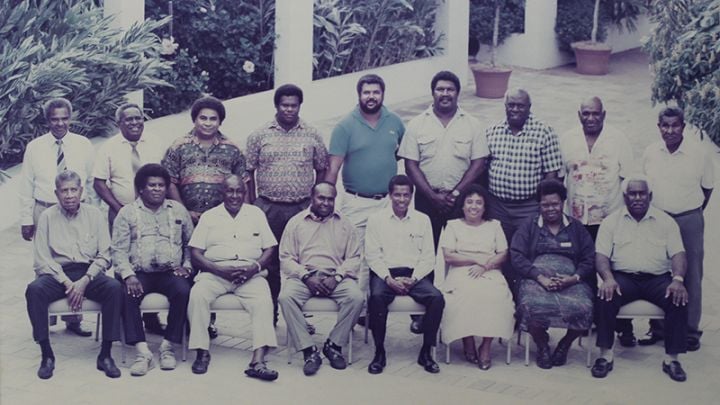
The Torres Strait Regional Authority (TSRA) celebrates its 25th anniversary this month as the regional peak body delivering a range of programmes and services to the region.
Established on 1 July 1994 under the then Aboriginal and Torres Strait Islander Commission Act, the statutory authority has since driven a large number of social and economic outcomes.
TSRA Chairperson, Napau Pedro Stephen AM said the organisation’s goal to improve the lifestyle and wellbeing of Torres Strait Islander and Aboriginal people living in the Torres Strait region has been its sole focus over its 25 years in operation.
“Our vison is empowering our people, in our decision, in our culture, for our future. We have built momentum and implemented projects that exemplify our commitment to this region over the past 25 years,” Mr Stephen said.
“We have achieved many things over a quarter of a century including being appointed as a Native Title Representative Body, establishing our own cultural and arts centre, managing and protecting our natural assets, and a host of economic enablers including our fishery industry.
“The TSRA has also maintained good international working relationships and standards with our Papua New Guinea neighbours through the Torres Strait Treaty, annual representation at the UN Permanent Forum on Indigenous Issues, and the implementation of the UN Declaration of Indigenous rights and principles to monitor service delivery by government and NGOs to our people and communities.

“There are many more things to do and a long way to go, however it is appropriate we reflect on what’s been achieved to date and to learn from and build on our successes.”
The organisation has delivered its output through eight programme areas while recognising and maintaining the special and unique Ailan Kastom of the people living in the region.
These include Economic Development; Fisheries; Culture, Art and Heritage; Native Title; Environmental Management; Governance and Leadership; Healthy Communities; and Safe Communities.
“The list of achievements delivered through our programmes is long, but some highlights include the establishment of the Gab Titui Cultural Centre, our highly successful and award winning Rangers Program, and significant progress towards the 100 per cent ownership of our fisheries,” Mr Stephen said.
“We have also provided training and employment opportunities through our Regional Economic Investment Strategy, launched the Torres Strait Climate Change Strategy to address rising sea levels in our communities, introduced a biosecurity plan and strategy to safeguard against disease and pests entering our country, and continued to represent Native Title issues.
“There is a lot of hard work put into delivering what we do which includes monitoring our effectiveness, and our structure of 20 elected Board members, including specific portfolio members, and a staff of over 160 people provide the mechanisms to effectively do all this.”
For more information on the TSRA visit www.tsra.gov.au
Pictured: The TSRA Board in 1994, which includes many of the Torres Strait’s greatest leaders.
Seated from left to right: George Mye, Joey Nona, Terry Waia, Getano Lui Jnr (Chairman), Doli Bin Tahal, Sanawai Aragu, Nelson Billy.
Standing from left to right: Gibson Pearson, Joseph Mosby, John Abednego, Edward Dau, Joseph Elu (Commissioner) , Reg Williams, Gaidam Gisu, Miseon Levi and Arthur Stephen.
Absent: Romina Fujii, Michael Bani and Henry Garnier.

